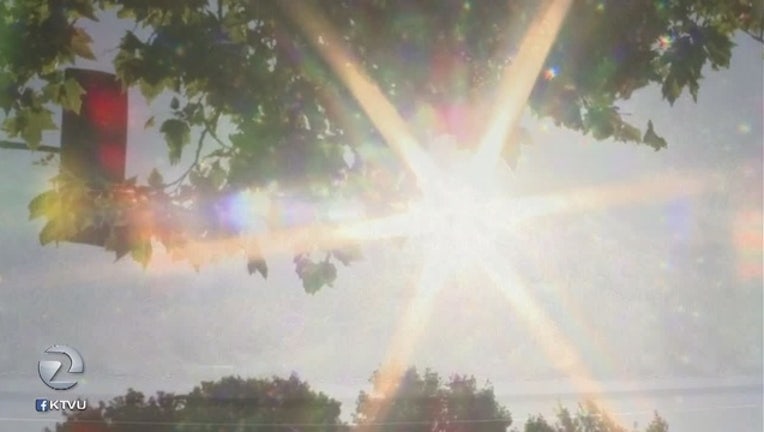Extreme heat: Tips to stay cool during warm weather

Health officials say Bay Area residents should take precaution on very hot days and when the mercury starts to rise.
"While it is essential that everyone take special care of themselves, it is equally important that we reach out to those who are especially vulnerable to the harmful effects of extreme heat, including children, the elderly, and their pets,” said Dr. Jeffrey Smith, Santa Clara County Executive. “Extreme heat such as this is not just an inconvenience, it can be dangerous and even deadly, but we can protect ourselves, our families, and our neighbors if we take steps to remain cool and hydrated.”
Individuals who participate in outdoor activities, older adults, caretakers of infants and children, individuals with chronic conditions including a drug or alcohol disorder, those living outside, and those sensitive to the heat should be cautious during high heat days.
Older adults and individuals with chronic medical conditions
- During peak heat hours stay in an air-conditioned area. If you do not have access to air conditioning in your home, visit public facilities such as cooling centers, shopping malls, parks, and libraries to stay cool.
- Older adults and those on certain medications may not exhibit signs of dehydration until several hours after dehydration sets in. Stay hydrated by frequently drinking cool water. If you’re on a special diet that limits liquids, check with your doctor for information on the amount of water to consume.
- Stay out of the sun if you do not need to be in it. When in the sun, wear a hat, preferably with a wide brim, and loose-fitting, light-colored clothing with long sleeves and pants to protect against sun damage. And remember to use sun screen and to wear sunglasses.
Infants and Children
- It is illegal to leave an infant or child unattended in a vehicle (California Vehicle Code Section 15620).
- Infants and young children can get dehydrated very quickly. Make sure they are given plenty of cool water to drink.
- Keep children indoors or shaded as much as possible.
- Dress children in loose, lightweight, and light colored clothing.
Pets
- Never leave a pet unattended in a vehicle, even with the windows ‘cracked’ or open. •Outdoor animals should be given plenty of shade and clean drinking water.
- Do not leave pets outside in the sun.
- Pets should not be left in a garage as garages can get very hot due to lack of ventilation and insulation.
For those who work outside or spend extended time outside during the heat.
- Ensure that cool drinking water is available.
- Drink water or electrolyte-replacing sports drinks often; do not wait until you are thirsty.
- Avoid drinking sweetened drinks, caffeine, and alcohol.
- Avoid drinking extremely cold water as this is more likely to cause cramps.
- Allow athletes or outdoor workers to take frequent rests.
- Pay attention to signs of dehydration which include dizziness, fatigue, faintness, headaches, muscle cramps, and increased thirst. Individuals with these symptoms should be moved to a cooler, shaded place, and given water or sport drinks. More severe signs of heat- related illness may include diminished judgment, disorientation, pale and clammy skin, a rapid and weak pulse, and/or fast and shallow breathing.
- Coaches, teachers, and employers should seek immediate medical attention for those exhibiting signs of heat-related illness.
- Avoid unnecessary exertion, such as vigorous exercise during peak sun hours, if you are outside or in a non-air conditioned building.

